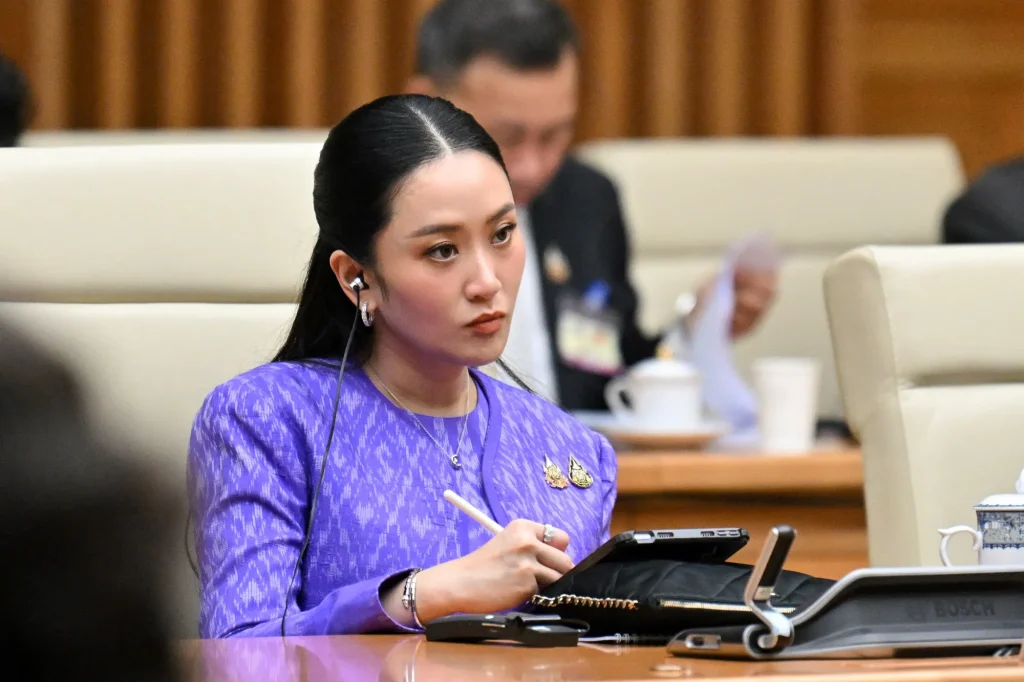Thailand’s Constitutional Court has removed Prime Minister Paetongtarn Shinawatra for ethical misconduct over her handling of a border dispute with Cambodia, deepening political turmoil in the kingdom.

Thailand has entered a new phase of political uncertainty after the Constitutional Court formally removed Prime Minister Paetongtarn Shinawatra from office. The ruling, delivered on grounds of ethical misconduct tied to her management of a sensitive border dispute with Cambodia, has sent shockwaves through Bangkok and renewed questions about the stability of Southeast Asia’s second-largest economy.
A Controversial Dismissal
The court’s verdict comes after months of heated debates over Paetongtarn’s policies. Critics accused her of mishandling negotiations with Phnom Penh, claiming her administration compromised Thailand’s national interests during discussions over contested territories.
The court ruled that her actions violated constitutional principles of ethical governance and responsibility, a charge that carries the harshest political consequence—removal from office.
The Shinawatra Legacy in Thai Politics
Paetongtarn, the daughter of former Prime Minister Thaksin Shinawatra, took office amid high expectations. Seen as the torchbearer of her family’s enduring political dynasty, she positioned herself as a modern leader who could balance Thailand’s economic revival with political reconciliation.
However, the Shinawatra name has long been polarizing. Both her father, Thaksin, and aunt, Yingluck Shinawatra, were ousted from office through military intervention or court rulings. Paetongtarn’s removal now adds another chapter to this pattern of political upheaval that has defined Thailand for two decades.
Domestic Fallout
The ruling immediately triggered political protests in Bangkok and other major cities. Supporters of the Shinawatra family see the dismissal as yet another judicial coup, claiming the courts are being weaponized against elected leaders.
Opposition groups, on the other hand, welcomed the verdict as a necessary step toward accountability, arguing that no leader should be above the law, regardless of family legacy.
For ordinary citizens, the bigger concern remains economic stability. Thailand has struggled with slow growth, rising inequality, and declining investor confidence. The removal of yet another prime minister is expected to stall critical policies and heighten uncertainty in financial markets.
International Implications
The timing of Paetongtarn’s removal is particularly sensitive. Thailand and Cambodia have long disputed parts of their shared border, especially near ancient temple sites recognized by UNESCO. Her dismissal could complicate future talks and escalate regional tensions in a part of Southeast Asia already strained by geopolitical rivalries.
Diplomats in Bangkok are closely monitoring developments, with some warning that prolonged instability could undermine ASEAN’s credibility in managing regional disputes. Cambodia has so far adopted a cautious tone, calling the matter “Thailand’s internal issue,” but analysts note that the removal could harden negotiation positions on both sides.
Who Leads Thailand Now?
With Paetongtarn officially out, Thailand faces a political vacuum. The court’s decision has triggered the constitutional process for appointing a caretaker prime minister, though it remains unclear who will lead until new elections are called.
The Pheu Thai Party, still dominant in parliament, is scrambling to preserve unity amid calls for a new face to carry forward its agenda. Meanwhile, opposition parties are pushing for reforms to prevent what they see as systemic abuse of judicial power in Thai politics.
A Nation at a Crossroads
Paetongtarn Shinawatra’s downfall underscores Thailand’s fragile balance between democracy, judicial authority, and entrenched political rivalries. While her removal may resolve one legal dispute, it risks igniting deeper divisions that could destabilize the country’s political future.
As Thailand waits for clarity, one thing is certain: the Shinawatra family’s influence remains unshaken, even in defeat. For supporters, Paetongtarn’s removal is not an end, but yet another battle in the ongoing war over the nation’s political identity.











Comments are closed.